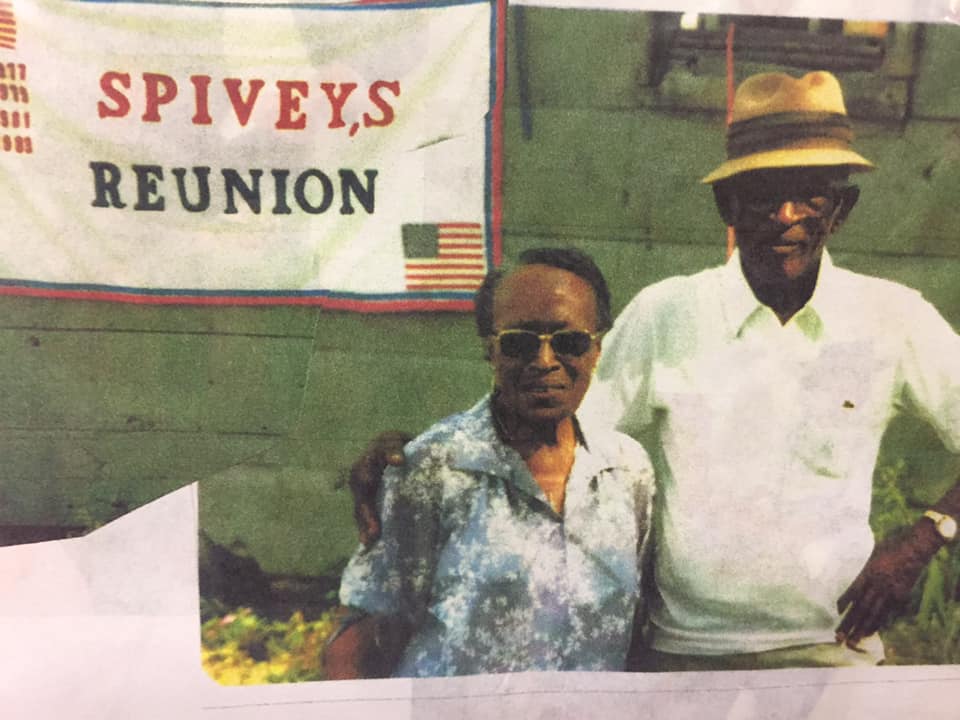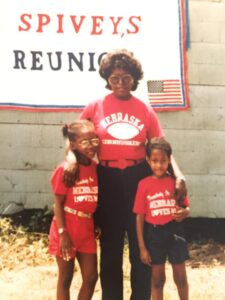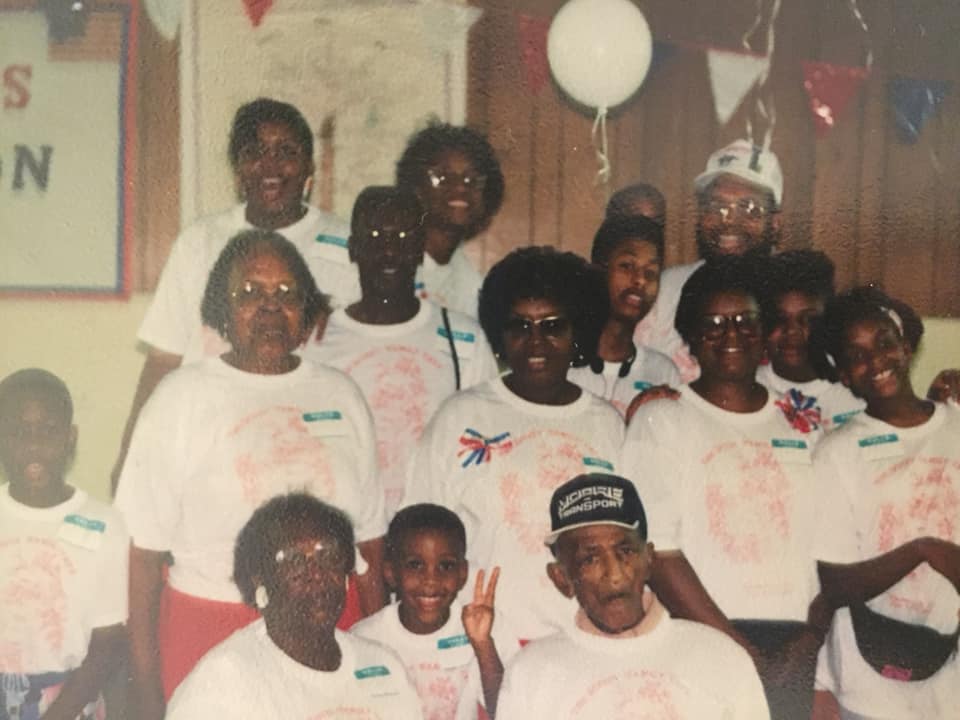As we celebrate Black History Month, we should consider the importance of understanding Black History at all levels. I’m reminded that history can be good and bad, as local and state leadership in many states try to prevent people from obtaining accurate and relevant history. It makes me think of my own family, the Spiveys out of Farmerville, LA, where my mother was born and raised before finally ending up in Omaha, NE.
The Spiveys are big on knowing our family history. For us, it isn’t always about the major icons such as Dr. Martin Luther King, Jr. or Malcolm X. It’s about “Blue Hen Chicken,” who was enslaved and had eight of her ten children sold into slavery. She took her last two children and escaped with them. She was resilient. She was strong. She didn’t settle or cower. She kept on fighting, even when it got tough. She was a fighter like my mother, grandmother, aunts, and cousins. She was a fighter, just like I am today.

I learned about my great-grandfather (who I had the pleasure of knowing), Shelley Spivey, and his parents and siblings. I discovered that he owned land and wasn’t a sharecropper like our textbooks would have us all believe about all Black people at that time. My grandfather raised my mother, aunt, and uncle while my grandmother was forced to accept wages serving as the maid for a white family in Texas. He is the one who taught my mother how to garden. A skill I wish I had obtained!
My father, from St. Matthews, SC, had the privilege of traveling the world while serving our country in the U.S. military. He spent some time in Nairobi, Kenya, where he got the idea to give his children African names. He is the reason my name is Kimara Zuri Snipes. I learned that African names had meaning and that meaning was powerful. You probably didn’t know that Zuri meant beautiful, did you? I was surrounded by decorations, drums, and hand-carved statues from Africa. For me, it brought a connection to something that I didn’t get in school. It taught me that our history extended outside of these borders- outside of our neighborhoods, zip codes, states, and even our country.

Knowing where I come from has given me a resilience that can’t be taught in schools. I hope you will take time with your families to listen to stories during this Black History Month. Maybe visit your Omaha Public Library branch and research the history of your neighborhood. If you can, sit down with your grandmother or parents and ask them what neighborhoods were like when they were kids. I challenge us to remember that historic icons don’t have to be read about in just books; they can often be found in our schools, churches, and neighborhoods.
Here are some Black Omaha icons to learn more about:
- Terry Lewis – Actor
- Dr. Matthew Oliver Ricketts – First African American Member of Nebraska Senate
- Bob Gibson – MLB Player
- Symone Sanders-Townsend – Political analyst and commentator
- Terrence “Bud” Crawford – Undisputed Welterweight World Champion
- Preston Love, Jr. – Politician, professor, author, and activist
- LaFern Williams – South Omaha neighborhood organizer
- Rev. Livingston Wills – “The Broom Man”
- Ernie Chambers – Politician and civil rights activist
- Mildred Brown – Founder of the Omaha Star
- Vivian Strong
- Will Brown
- Gale Sayers – NFL player
- Johnny Rodgers – NFL player and Husker
- Rowena Moore – Founder, Malcolm X Memorial Foundation
- Eugene Skinner – OPS’s first Black principal
- Marshall Taylor – Founder, Aframerican bookstore
- Cathy Hughes – Founder, Urban One
- Buddy Miles – Composer and musician
- Brenda Council – Politician
- Kenton Keith – NFL player
- Beverly Blackburn – Founder, John F. Kennedy Recreation Center
- Tanya Cook – Politician
- Bertha Calloway – Founder, Great Plains Black History Museum
- Edwina “Curlie” Justus – First African American woman locomotive engineer for Union Pacific Railroad
- John Foster, Eddie Staton, and Bishop Robert Tyler, Founders of MAD DADS
- Shirley Tyree – School advocate
- Kathy Tyree – Actress
- Gene Haynes – OPS teacher and administrator

